Allen Gewalten zum trotz, sich erhalten!
(“Despite all the powers, maintain yourself!”)
The life of Sophie Scholl changed on the day she and most of her siblings were arrested by the Gestapo. Along with her brother Werner and her sister Inge, she was summarily removed from the family home in Ulm (a small town about 75 miles from Munich) and taken to a local jail.
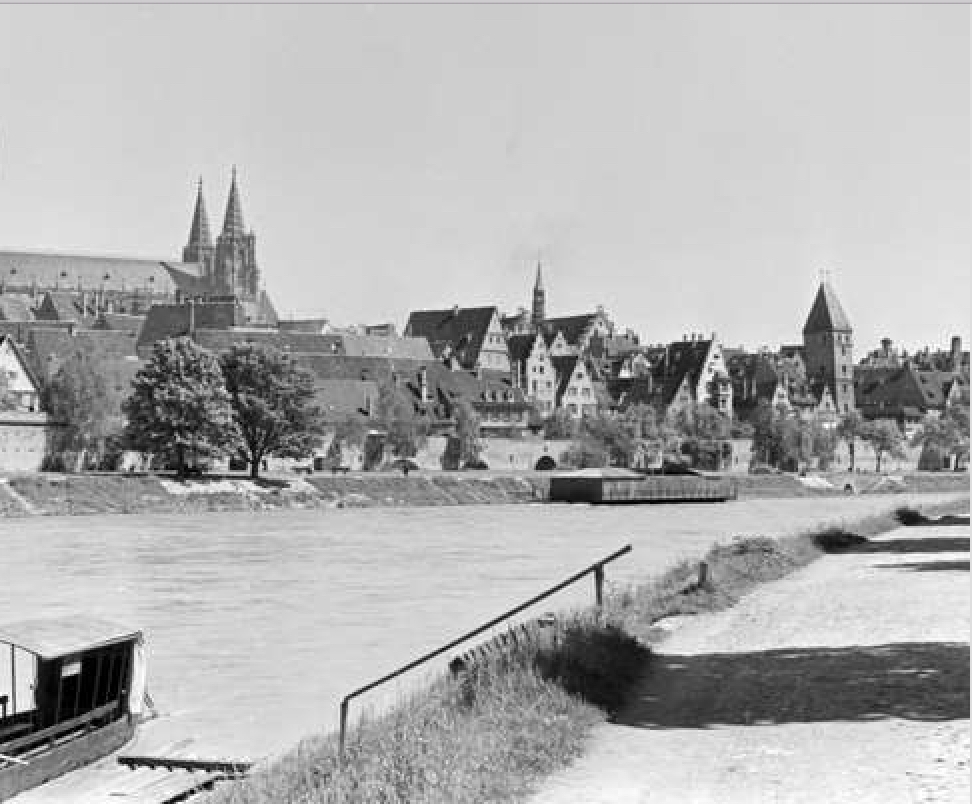
Their parents stood by helplessly as their children were handcuffed and their home was ransacked by the secret police. Sophie was 16 years old at the time while Inge and Werner were 20 and 15, respectively. Her older brother, Hans (19), had been taken into a custody a few weeks earlier.[1] The year was 1937.
Their crime? They were suspected of participating in group activities other than those sponsored by the Hitler Youth or its counterpart for girls, the Bund Deutscher Mädel (the League of German Girls). Many such unauthorized groups were suspected of being hostile or indifferent to the regime and, therefore, all had been outlawed.[2]
Sophie, Inge and Werner were vigorously interrogated but were eventually released after the Gestapo concluded they had been sufficiently intimidated.[3] Hans, however, was held for several weeks. Unlike his siblings, the secret police had some grounds for suspecting Hans of dissident activity. He was a known member of dj.1.11,[4] which was a branch of the German Youth Movement, a cultural and educational organization founded in 1896,[5] whose members tended to be religious, philosophical and idealistic and enjoyed reading banned works of literature and poetry.[6] Such attitudes were not compatible with National Socialism.[7]
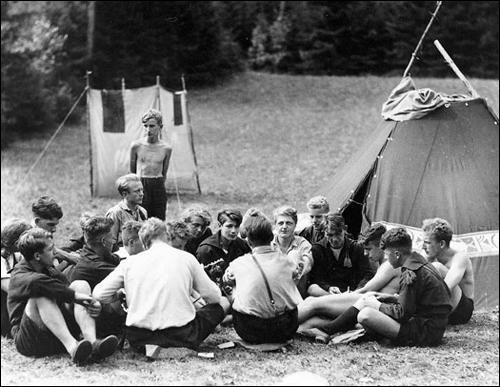
Hans likely would have been detained longer had it not been for friends in high places. The captain of his calvary unit—Hans was now in the second year of his mandatory military service—was impressed with him, so he pressured the Gestapo to let him go.[8] As with his sister Sophie, this encounter with the secret police altered his views of the Nazi regime.
Four years earlier when Adolf Hitler became Chancellor of Germany, all of the Scholl children were enthusiastic supporters of National Socialism. They saw the economic progress Germany was making and felt a renewed sense of pride in their country. Once they were eligible, they joined the Nazi Youth and the League of German Girls.[9] But they did so over the stern objections of their father, Robert Scholl, who was a lawyer, financial consultant and active in local politics.
While he acknowledged Germany’s recent economic progress, their father was troubled by its direction. The biggest wheels of industry turning were those of the war industry, with new armaments and barracks coming on line at a record pace. He pleaded with his children, “Do you know where that’s all going to end?”[10] For Robert Scholl the answer was clear: war. Nevertheless, he was a firm believer in allowing his children to choose their own paths.[11] In doing so, however, he asked that they always abide by this simple principle: “Despite all the powers, maintain yourself!”
Hans had actually become disenchanted with National Socialism a year before his arrest. But what caused him and his sister, Sophie, to oppose the regime was Kristallnacht, the Night of Broken Glass.
On November 7, 1938, a young Jewish refugee, seeking revenge for the deportation of his father to Poland, shot and killed an official in the German Embassy in Paris. In response, Joseph Goebbels, Hitler’s Minister of Propaganda, immediately orchestrated multiple demonstrations tasked with a single mission: destroy Jewish property and synagogues and arrest as many Jews as possible on any pretext available. The result? In Germany and Austria, over 20,000 Jews were arrested, scores were killed, and the streets were littered with broken glass—which sparkled in the night—from 7,500 Jewish shops.[12]
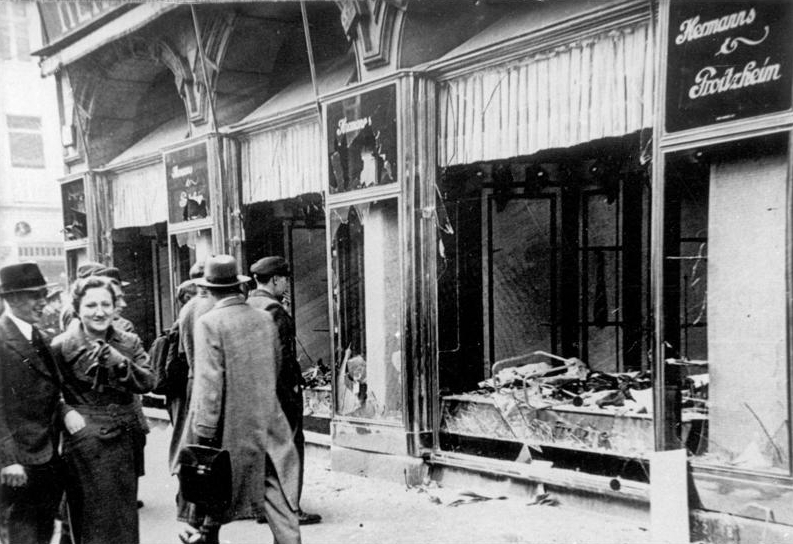
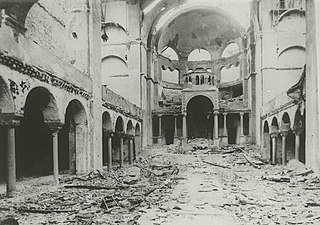
This was repression and barbarism of a different order of magnitude. And it had profound impact on the psyche of the German public. As Dr. Hans Bernd Gisevius, one of the later conspirators in the plot to assassinate Hitler, wrote: “From whom could decent Germans now expect protection if these horrible excesses were followed by others? … the cowed middle class stared at the Nazi monster like a rabbit at a snake.”[13] In one night, the populace had been reduced to absolute submission.
Hans was delighted when, upon completing his mandatory military service in 1939, he was able to matriculate as a medical student at the University of Munich. Medicine, as a career, held little appeal except that it would allow him to serve in the medical corps instead of the calvary should he be called up again.
What he hoped to find in Munich more than anything else was clarity. “I want all shadows to depart me.” In his search for answers, he turned to the Socratic dialogues, the Pensées of Pascal, the theological works of Augustine, the common sense of Thomas Aquinas, and the scriptures.[14] Hans found comfort and guidance in these texts because they were staples in the family home, where books, classical music, and poetry were taken seriously.[15]
His search for clarity received a big assist from other medical students in Munich—Christoph Probst, Alexander Schmorell, Willi Graf, and Jugen Wittenstein—who were equally disenchanted with the Nazi government. In 1942, this band of brothers was expanded to include his sister, Sophie, who came to the university to study philosophy.[16]
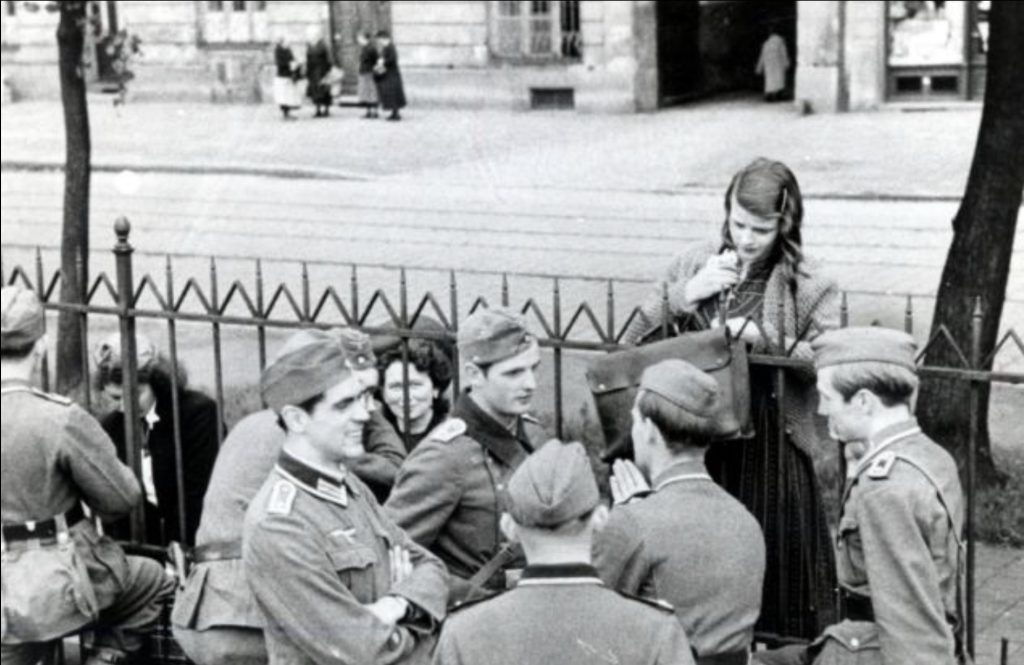
She, like her brother, had turned to great works of literature and the Bible to find direction in her life, and her views aligned perfectly with those of Hans and his friends. Prompted by the execution of members of the German resistance, they decided to form a group called “The White Rose.”[17] They took as their guiding principle these words of the critic and poet Friedrich Schlegel: “Do not waste your faith and love on the political world, but in the divine world of knowledge and art offer up your inmost being in a fiery stream of eternal creation.”[18]
Though they were united in their desire to destroy Hitler’s fascist government, they struggled to answer the question: “What can we do?” William Shirer, a U.S. correspondent stationed in Germany during the first two years of the war and the author of The Rise and Fall of the Third Reich, was often asked that question by Germans who opposed the war but felt helpless to stop it. Shirer later admitted that this was not an easy question to answer.[19] But the members of the White Rose found an answer: in June 1942, the group began disseminating leaflets criticizing and indicting not just the Nazi regime but every apathetic German citizen:
“Who can imagine the extent of the shame that will engulf us and our children once the scales fall from our eyes and crimes monstrous beyond all measure are revealed? * * * * Everyone wants to exonerate himself from his share of the blame and then go back to sleep with a good conscience. But it cannot be done. Everyone is guilty! guilty! guilty!”
Second Leaflet, p. 191.
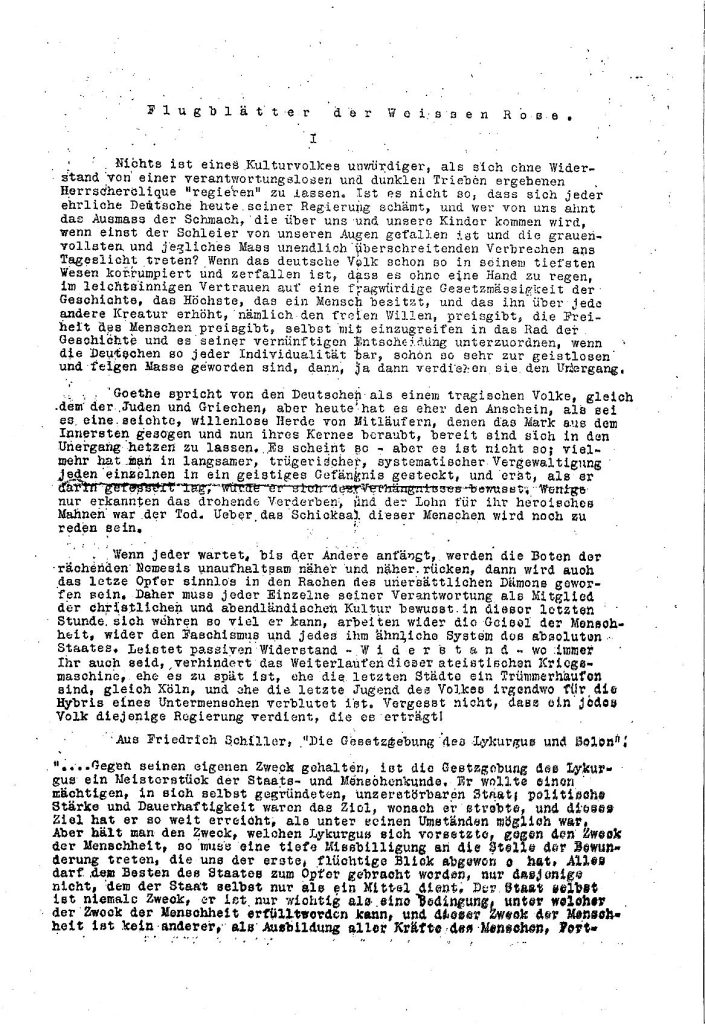
Over the next several weeks, a total of four leaflets were published under the name of “The White Rose,” each bolder and more visceral than its predecessors.[20] They highlighted the mass murder of the Jews and the Poles, atrocities witnessed by Hans and some of his colleagues when they served as medics on the Eastern Front. And they added a special gravitas to their fliers by quoting from the works of great German authors such as Schiller, Goethe and Mann.[21]
For the first time in the history of the Third Reich, opposition to Adolf Hitler had been voiced publicly.[22] Though they were idealists, the members of the White Rose knew their leaflets would not bring the regime to its knees. But they also knew that the Nazis feared an erosion of the faith of the German people far more than the bullets and bombs of the enemy. If the seed of doubt could be planted in the minds of the populace, perhaps it would blossom into a full-blown rebellion.
Their group expanded to include Kurt Huber, a Catholic professor of philosophy at the university who had a profound impact on the intellectual thought of its members.[23] It then grew beyond Munich to include friends and colleagues in other university towns, such as Berlin, Stuttgart, Hamburg and Vienna.[24]
At the insistence of Hans, they became bolder after Germany, on February 2, 1943, suffered its first major defeat of the war at Stalingrad. A staggering 200,000 German and allied troops had been killed in the battle, while an additional 235,000 were taken prisoner. Over 55,000 of those POWs were dead from starvation within two months because the Russians lacked the resources to house them properly.[25]
Hans believed this was the time to energize the people, to issue “A Call to All Germans!” In the group’s sixth leaflet, he highlighted the catastrophe of Stalingrad and encouraged his fellow citizens to act before it was too late.[26] In addition, he and Alex Schmorell began to sneak out at night to paint “Down with Hitler” on the walls of the streets of Munich,[27] the city that laid claim to being the birth place of National Socialism.[28]
Sophie, while sharing her brother’s passion, feared he was acting recklessly. Her fears were realized a few days later when she and her brother were caught by a university employee distributing copies of the Sixth Leaflet on the campus courtyard. They were immediately arrested and taken to Gestapo headquarters. Their co-conspirator, Christopher Probst, was also apprehended.[29] All three were subjected to intensive interrogation but none betrayed the other members of the White Rose.[30]
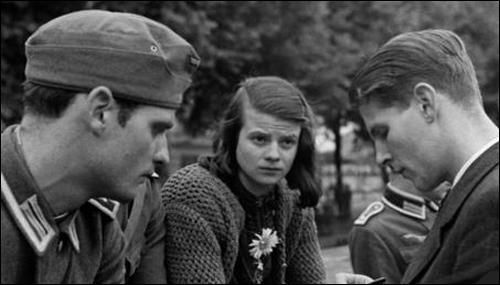
Sophie knew this day would come eventually, but was not distraught. Many months earlier she told a close acquaintance, “So many are dying for this regime, it’s only right some should die against it.”[31] Upon reading the indictment while awaiting trial, she asked, “What does my death matter if by our action thousands of people are awakened and stirred to action?”[32]
Four days after their arrest they were brought before the People’s Court, Judge Ronald Freisler presiding. Their court-appointed lawyers were bewildered by Freisler’s presence since he only appeared in cases of treason and subversion, and these were just some college kids handing out leaflets. Though it seemed like only a minor incident to the lawyers, the activities of White Rose had caused serious consternation in the highest echelons of the government, which was acting as if National Socialism was now confronting its gravest threat.
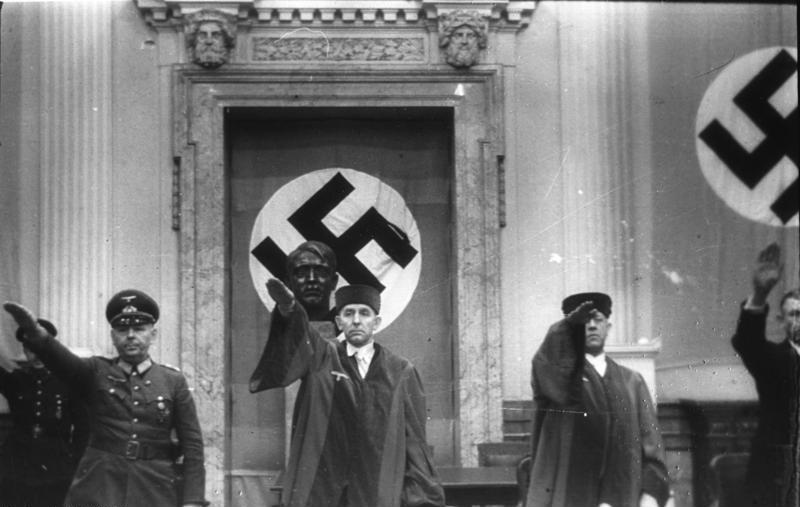
The judge and the prosecution were genuinely perplexed by the behavior of the defendants. After all, they had been inculcated and nurtured by National Socialism from their youth. Moreover, they were students at the University of Munich, an institution, like all other colleges in the country, known for its passionate support of Naziism. So they felt compelled to ask the defendants, in open court, “Why?” Sophie spoke for them all when she said: “Somebody, after all, had to make a start. What we wrote and said is also believed by many others. They just don’t dare to express themselves as we did.”[33] Little time was wasted in wrapping up this kangaroo court. At its conclusion Freisler passed sentence: death by guillotine, to be administered that very same day.
What few people knew at the time is that Sophie, the day before the trial, had been singled out for special treatment. The execution of a young girl for treason was highly unusual, prompting the Gestapo to offer her a lesser sentence if she would express regret for her behavior and admit she had been wrong. She rejected the offer instantly, refusing to turn on her brother even though he had urged her to do just that to save herself.[34]
All three defendants were taken to the Stadelheim prison where they would be executed two hours later. They were preternaturally calm, much to the amazement of the prison officials, including its Director, Dr. Koch. The word they used to describe their demeanor was Seelenkraft, “their strength of soul.”[35]
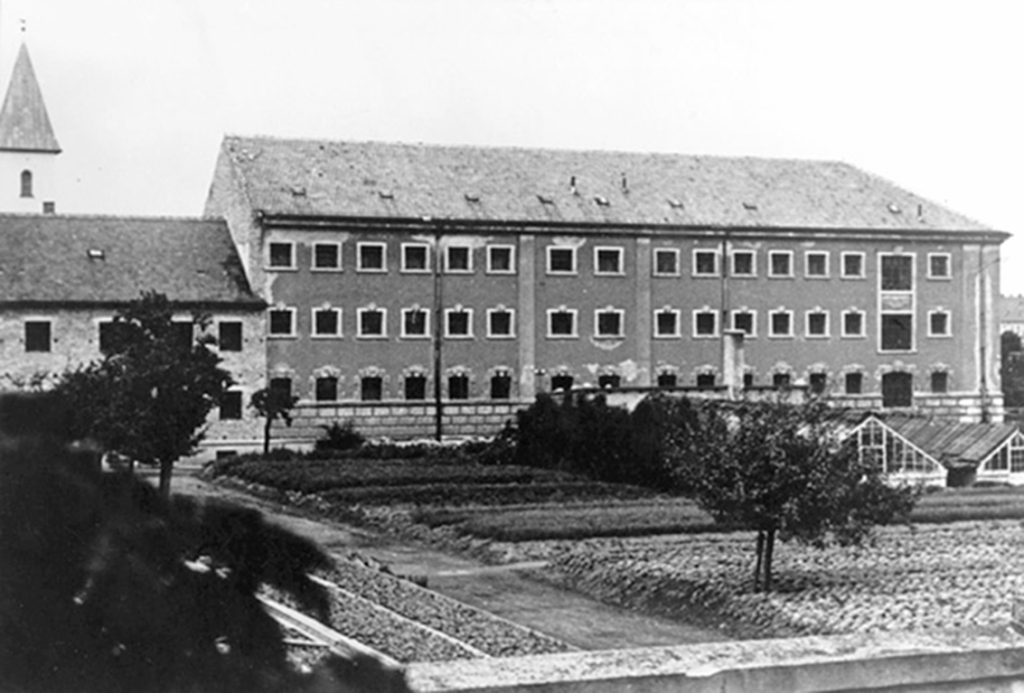
Miraculously, Robert and Magdalena Scholl arrived at Stadelheim in time for a final visit with their children. Hans, displaying no signs of fear, told his father, “I have no hatred. I have put everything, everything behind me.” His father put his arms around him and said, “You will go down in history—there is such a thing as justice in spite of all this.”[36]
Sophie’s final words to her mother were equally poignant, saying in response to Magdalena’s tearful acknowledgment that this was to be their final parting, “Oh mother, after all, it’s only a few years’ more life I’ll miss.”[37] Magdalena bravely embraced her daughter’s acceptance of her fate, prompting Sophie to feel a sense of peace.[38]
The composure and dignity of all three defendants held firm through the very end. Hans, the last to be beheaded, boldly declared, as he walked into the room housing the Stadelheim blade, “Es lebe die Freiheit!” (Long live freedom!)[39]
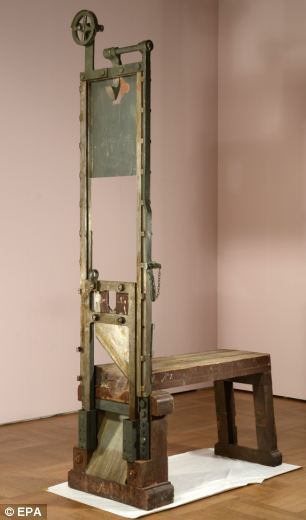
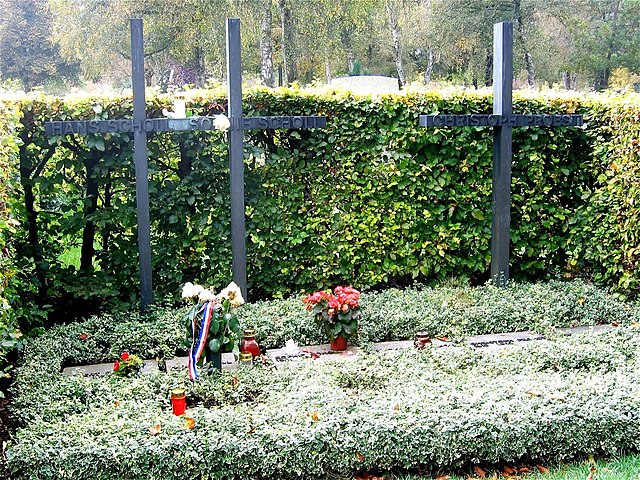
Some historians have dismissed the White Rose movement as “suicidal,” albeit courageous,[40] noting that the ‘foundations of the Nazi regime had not been shaken nor had the mythology around Hitler lost its power.” But this perspective, in my opinion, is far too narrow.
The government was required to devote scarce resources to combatting other dissident voices beginning to surface around the country. This development was fostered, in part, by the allies who, having obtained copies of the group’s leaflets, dropped thousands of them over Germany just a few months after the White Rose leaders had been executed.[41] And their influence was felt well after the war.
While in the years immediately after their surrender, most Germans considered the White Rose participants to have been traitors, that changed, in part, due to the publication of a book called The White Rose 1942-1943, authored by Inge Scholl, the oldest surviving Scholl child who died in 1986. Her book and subsequent writings “influenced many Germans who grew up after the war, reinforcing what was already a deep revulsion against the militarism that brought the country to catastrophe and moral disgrace.”[42]
One historian has declared that the selfless, heroic actions of Hans, Sophie and their colleagues “are unsurpassed in European history and worthy of our highest admiration.”[43] But this begs the question, why did they act? What was it about their character, their upbringing, and their education that gave them the courage to do what they did?
First, though members of different faiths, they were all deeply religious. Each of their faith traditions taught them self-control, the importance of reflecting on past mistakes, and of taking the long view towards the future. The great French political philosopher Alexis de Tocqueville succinctly explained why the accomplishments of men and women such as these have proven so durable: “Their concern with the other world, it seems, reveals to them the great secret of success in this one.”[44]
Second, they had a firm understanding of the world around them because they had been raised in homes and attended schools that taught them the importance of being deeply literate. They assiduously studied history, which armed them with a storehouse of knowledge that sharpened their analytical skills. In addition, they were passionate students of literature which, in the words of the scholar Charles Hill, teaches us how large themes portrayed through “the thoughts of imaginary characters…and intricate plots” help us comprehend human nature and how the world functions. This instills humility since it underscores the impossibility of any one individual knowing “all of the facts, considerations, and potential consequences of a situation at the time a decision must be made.”[45]
Finally, by integrating their faith, knowledge and wisdom, the members of The White Rose had a vision of a better world than the one they inhabited. For example, Hans, two months before his arrest, trial and execution, spoke of a time when National Socialism would be swept away and then imagined what might take its place. With extraordinary prescience, he envisioned a United States of Europe grounded in democracy.
In the early nineteenth century, another German—Crown Prince Ludwig of Bavaria—found himself in somewhat similar circumstances, having just witnessed the dissolution of The Holy Roman Empire of the German Nation at the hands of Napoleon Bonaparte.
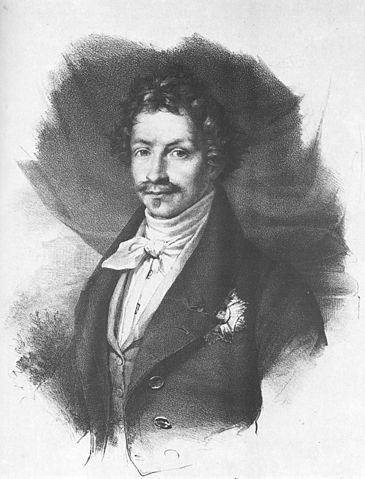
It was in the days of Germany’s deepest degradation that the Crown Prince came up with the idea of having fifty of the most illustrious Germans immortalized in marble busts, to be housed in a temple called “Walhalla”—the Hall of Heroes—which was a majestic hall in Norse mythology presided over by Odin. This was passive resistance to the French occupation in the form of history, preserving the heritage of the German people for a future time.[46]
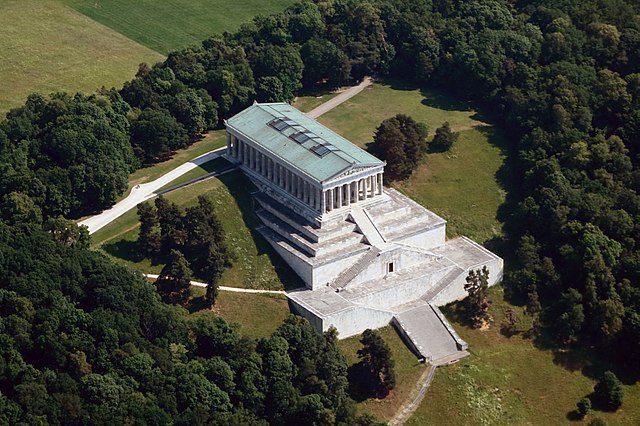
The site chosen by Ludwig for this temple was on a hill three hundred feet from a remote stretch of the Danube River. The actual structure, however, does not pay homage to the Norse gods later revered by the Nazis. Rather, it is a Germanic version of the Parthenon. In the words of Neil MacGregor, Director of the British Museum, in this temple “the greatest Germans are being inducted into a fellowship with the Ancient Greeks.”[47]
To date, 130 individuals have been enshrined in marble in Walhalla, including, Gutenberg, Luther, Bach, Kant, Copernicus, Goethe, Rubens and Einstein. The most difficult recent decisions concern Germans who died at the hands of the Third Reich. Only two have been chosen: (1) the highly-regarded philosopher Edith Stein, who was murdered at Auschwitz because of her vocal opposition to state policies, and (2) Sophie Scholl, whose bust is the last one a visitor sees as he exits the main level of the monumental hall.[48]
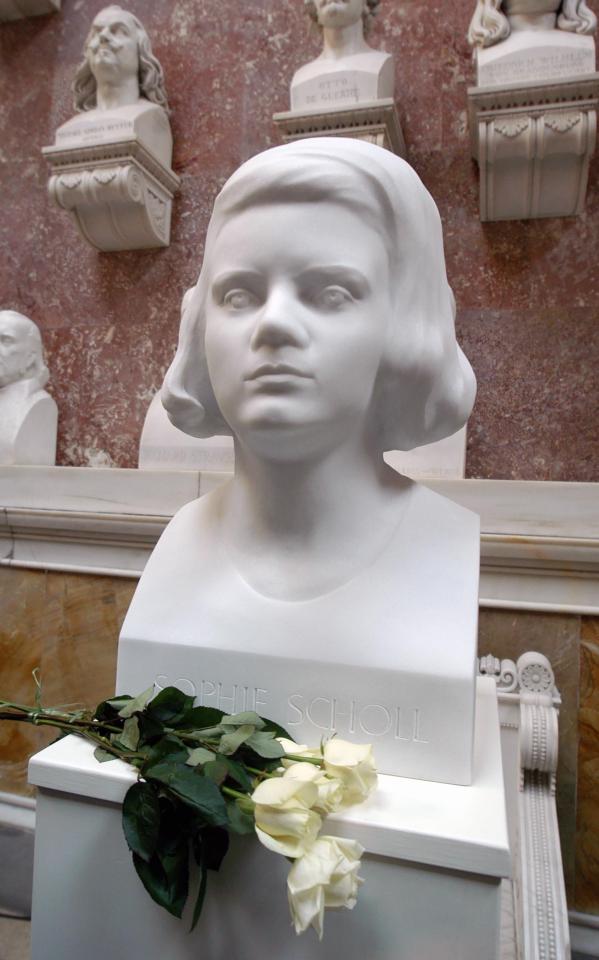
The plaque beneath her image is engraved with the following words: “In memory of all those who courageously offered resistance to the injustice, the violence and terror of the Third Reich.”
We honor the memory of Sophie Scholl and her compatriots when we tell their story. We keep it alive when, in the service of our fellow man, we emulate their search for faith, knowledge, and an eternal perspective—and then act.
[1] Richard Hasner, A Noble Treason: The Story of Sophie Scholl and The Rose Revolt Against Hitler, (San Francisco: Ignatius Press, 2012), p. 69. The only child not arrested was Elizabeth (17).
[2] Ibid.
[3] Ibid, p. 70.
[4] The Deutsche Jungenschaft (German Youth) affiliate of Hans was a member was formed on November 11, 1929; thus, it was abbreviated “dj.1.11.”
[5] Gordon Thomas and Greg Lewis, Defying Hitler: The Germans Who Resisted Nazi Rule, (New York: Dutton Caliber, 2020), p. 57.
[6] Ibid, p. 185.
[7] Inge Scholl, The White Rose: 1942-43, (Middletown, Connecticut: Wesleyan University Press, 1983), p. 13.
[8] Annette Dumbach and Jud Newborn, Sophie Scholl and the White Rose, (Oxford: Oneworld Publications, 2011), p. 44.
[9] A Noble Treason, pp. 3604.
[10] Anton Gill, An Honourable Defeat: A History of German Resistance to Hitler, (Armonk, New York: Sharpe Books, 1994) p. 215.
[11] A Noble Treason, p. 58
[12] Volker Ulrich, Hitler: Ascent 1889-1939, (New York: Alfred A. Knopf, 2016), pp. 670-676.
[13] Michael Baigent and Richard Lee, Secret Germany: Stauffenberg and the True Story of Operation Valkyrie, (New York: Skyhorse Publishing, 20018), p. 175.
[14] Sophie Scholl, p. 68.
[15] A Noble Treason, pp. 51, 80-82, 51.
[16] Ibid, p. 143.
[17] Defying Hitler, p. 249. According to Thomas and Lewis, Hans chose the name based on a poetic ballad he had read. Most other scholars, however, that the name “White Rose” could have originated from multiple different sources. See, e.g., An Honourable Defeat, p. 189.
[18] Gerald N. Izenberg, Impossible Individuality: Romanticism, Revolution, and the Origins of Modern Selfhood, 1787-1802, (Princeton, New Jersey: Princeton University Press, 1992), p. 66.
[19] William L. Shirer, The Rise and Fall of the Third Reich: A History of Nazi Germany, Vol 1, (London: The Folio Society, 1995), p. 253.
[20] Sophie Scholl, p. 56.
[21] An Honourable Defeat, p. 190.
[22] A Noble Treason, p. 160.
[23], Ibid, p, 189.
[24] Joachim Fest, Plotting Hitler’s Death: The Story of the German Resistance, (New York: Metropolitan Books), p. 198
[25] Richard J. Evans, The Third Reich at War, (New York: The Penguin Press, 2009), p. 629.
[26] Sophie Scholl and the White Rose (The Fifth Leaflet), 1999.
[27] Defying Hitler, p. 325.
[28] An Honourable Defeat, p. 183.
[29] Ibid, 193.
[30] Sophie Scholl and the White Rose, pp. 148-152; A Noble Treason, pp. 238-242.
[31] P. 166.
[32] Plotting Hitler’s Death, p. 199.
[33] A Noble Treason, p. 251.
[34] Ibid, p. 241.
[35] Ibid,. 258.
[36]Inge Scholl, The White Rose: Munich 1942-1943, (Middletown, Connecticut: Wesleyan University Press, 1983), p.61.
[37] An Honourable Defeat, p. 194.
[38] Ibid, pp. 61-62. See also, An Honourable Defeat, p. 194.
[39] Annette E. Dumbach, Shattering the German Night, (New York: Little Brown & Co., 1986), p. 211.
[40] Ian Kershaw, Hitler: A Biography, (New York: W.W. Norton & Company, 2008), p. 741.
[41] The Third Reich at War, p. 629.
[42] Andrews, Edmund L., “Inge Aicher-School, 81, a German Whose Writing Inspired Pacifists,” The New York Times, September 6, 1986, section 1, p. 43.
[43] J. P. Stern, Hitler: The Führer and the People, (Berkley and Los Angeles, California: University of California Press, 1992), p. 123.
[44] Alexis de Tocqueville, Democracy in America, trans. by Arthur Goldhammer, (New York, New York: The Library of America, 2004), p. 639.
[45] Charles Hill, Grand Strategies: Literature, Statecraft, and World Order, (New Haven, Connecticut: Yale University Press 2010), p. 6.
[46] Neil MacGregor, Germany: Memories of a Nation, (New York: Alfred A. Knopf, 2015), pp. 153-154.
[47] Ibid, pp. 158-159.
[48] Ibid, pp. 170-172.

What an inspiring essay! I had heard of the White Rose, but knew none of the details of their story. Their idealism and bravery are breathtaking.
I confess, however, that I am skeptical about attempts to explain how such bravery occurred. Yes, they were deeply religious, deeply literate, and had a vision of a better world to come. But I’m confident that there thousands of other deeply religious and deeply literate Germans who had a vision of a better Nazi-free Germany who were just too afraid to do anything in opposition to the Nazis.
Such bravery is wonderful in part because it is inexplicable.
This story is likely to have been repeated by other youth of there time, not necessarily with same outcome. F Enzio Busche (LDS General Authority), was part of the youth group, much to the dismay of his parents, but withdrew, without consequence if memory serves me well enough.
Doug, you make a good point. It is rather difficult to explain what motivated the members of the White House to take these risks. While I do believe their religious convictions and classical education allowed them to accurately assess the threat posed by National Socialism, it is hard to discern where they found the courage to act. Part of it, I suspect, was youthful idealism and a belief that there are things worse in life than martyrdom. But the mystery still remains. Which, as you say, is what makes it wonderful.
Michael, it’s great to hear from you. And thanks for alerting me to story of F. Enzio Busche. I was unacquainted with this man and look forward to learning more about him.
Since he was born in 1930 and, therefore, who have only been nine years old when the war began, I can understand why his parents discouraged his participation in any group opposing the government.
Sylvia and I are studying WWII in history right now and I wanted her to hear this story. So beautifully written, and also so tragic. I kept getting choked up, realizing that Sophie is the same age as my sweet girls. It added some perspective to our study I really appreciate. Thanks again for all your great essays.